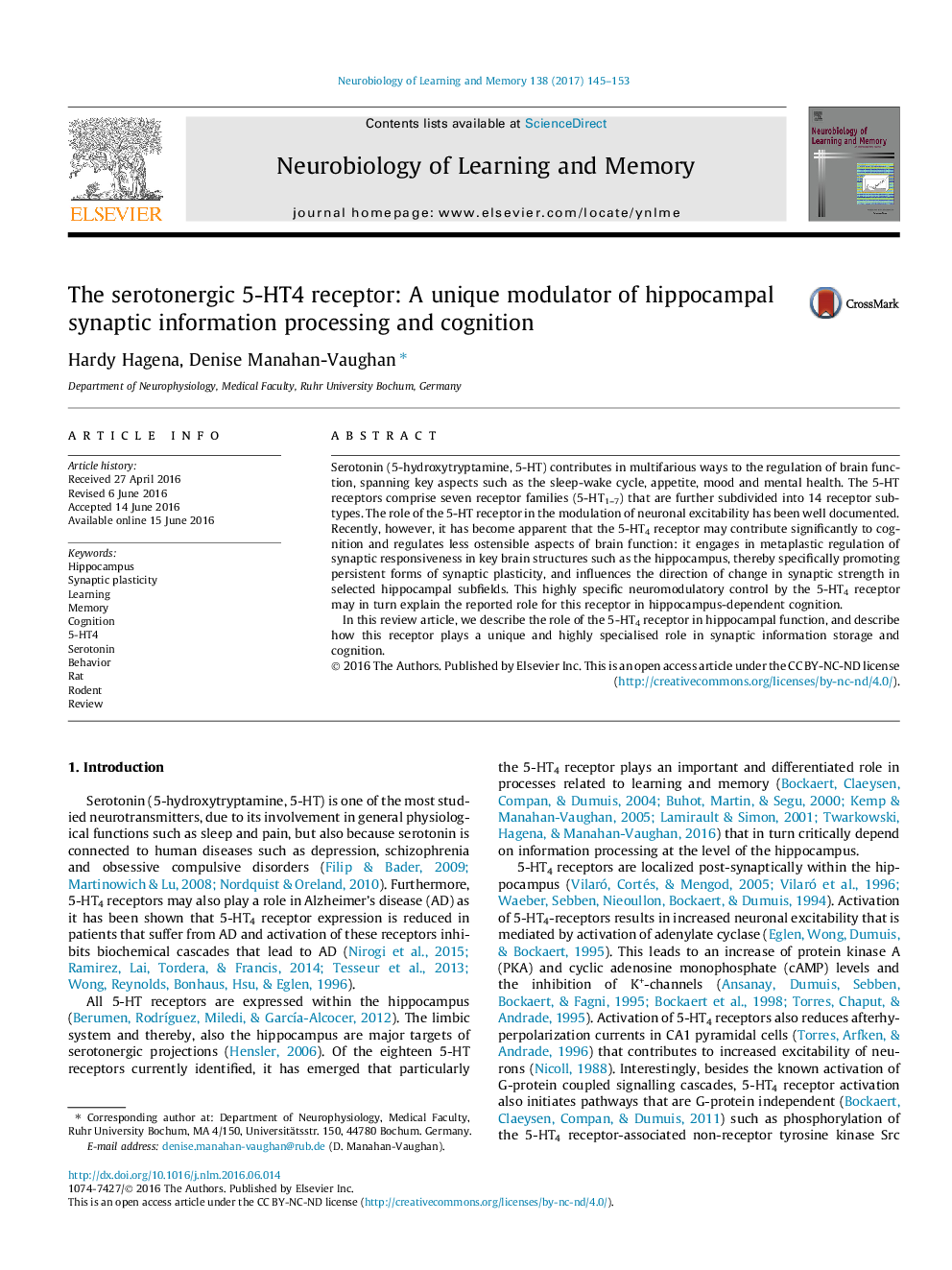| Article ID | Journal | Published Year | Pages | File Type |
|---|---|---|---|---|
| 5043328 | Neurobiology of Learning and Memory | 2017 | 9 Pages |
â¢Review of the role of 5-HT4 receptors in hippocampal function.â¢Focus on cognition and synaptic plasticity.â¢Particular scrutiny of their property of biasing information encoding towards LTP.
Serotonin (5-hydroxytryptamine, 5-HT) contributes in multifarious ways to the regulation of brain function, spanning key aspects such as the sleep-wake cycle, appetite, mood and mental health. The 5-HT receptors comprise seven receptor families (5-HT1-7) that are further subdivided into 14 receptor subtypes. The role of the 5-HT receptor in the modulation of neuronal excitability has been well documented. Recently, however, it has become apparent that the 5-HT4 receptor may contribute significantly to cognition and regulates less ostensible aspects of brain function: it engages in metaplastic regulation of synaptic responsiveness in key brain structures such as the hippocampus, thereby specifically promoting persistent forms of synaptic plasticity, and influences the direction of change in synaptic strength in selected hippocampal subfields. This highly specific neuromodulatory control by the 5-HT4 receptor may in turn explain the reported role for this receptor in hippocampus-dependent cognition.In this review article, we describe the role of the 5-HT4 receptor in hippocampal function, and describe how this receptor plays a unique and highly specialised role in synaptic information storage and cognition.
